My "Select all {amount} {model}s" action, which should be in the actions bar while viewing a model page in the Django admin, does not work in production.
Expected behaviour, as recorded running locally with DEBUG=True in local_settings.py:

Behaviour on staging deployment and while running locally with DEBUG=False:

I'm having issues with inconsistency between the static files my templates are working with between a local running of the runserver command with DEBUG=True vs. running the same codebase after running collectstatic and then running it with DEBUG=False in my settings.
The differences in static files is also apparent in the listed sources when inspecting the page. Working correctly:
Not working correctly:
Running the collectstatic command gives me this output:
Loading .env environment variables...
Found another file with the destination path 'admin/js/actions.js'. It will be ignored since only the first encountered file is collected. If this is not what you want, make sure every static file has a unique path.
Found another file with the destination path 'admin/js/admin/RelatedObjectLookups.js'. It will be ignored since only the first encountered file is collected. If this is not what you want, make sure every static file has a unique path.
Found another file with the destination path 'admin/js/admin/DateTimeShortcuts.js'. It will be ignored since only the first encountered file is collected. If this is not what you want, make sure every static file has a unique path.
But locally, both actions.js and actions.min.js are present in my static files folder. I don't want to turn on DEBUG on the production deployments, but currently don't know how to solve this issue I'm having. All help would be appreciated.
EDIT: My settings file was requested, so here's a version (cleaned of sensitive data):
import os
DEBUG = False
MAINTENANCE_MODE = False
TEMPLATE_DEBUG = DEBUG
DEPLOYMENT_NAMESPACE = os.getenv("K8_NAMESPACE", "")
DEPLOY_LOCATION = "testing"
SESSION_COOKIE_AGE = 604800 # A week
DATABASES: dict = {
"default": {
"ENGINE": "django.db.backends.postgresql",
"HOST": "127.0.0.1",
"NAME": f"[DB_NAME]",
"USER": "postgres",
"PASSWORD": "[PASSWORD]",
}
}
DATABASES["readonly"] = DATABASES["default"].copy()
DATABASES["readonly"]["USER"] += "_readonly"
DATABASES["readonly"]["TEST"] = {"MIRROR": "default"}
UNICORN_VERSION = os.getenv("UNICORN_VERSION", "[COMPANY_NAME]")
# Absolute path to the directory static files should be collected to.
# Don't put anything in this directory yourself; store your static files
# in apps' "static/" subdirectories and in STATICFILES_DIRS.
# Example: "/var/www/example.com/static/"
STATIC_ROOT = PROJECT_PATH.joinpath("static")
# URL prefix for static files.
# Example: "http://example.com/static/", "http://static.example.com/"
STATIC_URL = "/static/"
# Additional locations of static files
STATICFILES_DIRS = (
PROJECT_PATH.joinpath("versions", UNICORN_VERSION, "static"),
# Put strings here, like "/home/html/static" or "C:/www/django/static".
# Always use forward slashes, even on Windows.
# Don't forget to use absolute paths, not relative paths.
)
# List of finder classes that know how to find static files in
# various locations.
STATICFILES_FINDERS = (
"django.contrib.staticfiles.finders.AppDirectoriesFinder",
"django.contrib.staticfiles.finders.FileSystemFinder",
)
LOCALE_PATHS = [PROJECT_PATH.joinpath("locale")]
# When a version defines a locale folder, it becomes the main
LOCALE_PATHS = getattr(version_settings, "LOCALE_PATHS", LOCALE_PATHS)
INSTALLED_APPS = [
"django.contrib.contenttypes",
"django.contrib.auth",
"django.contrib.sessions",
"django.contrib.sites",
"django.contrib.messages",
"django.contrib.staticfiles",
"django_otp",
"django_otp.plugins.otp_static",
"django_otp.plugins.otp_totp",
"two_factor",
"grappelli",
"grappelli_filters",
"django.contrib.admin",
"rangefilter",
"admin_numeric_filter",
"admin_auto_filters",
"api",
]

